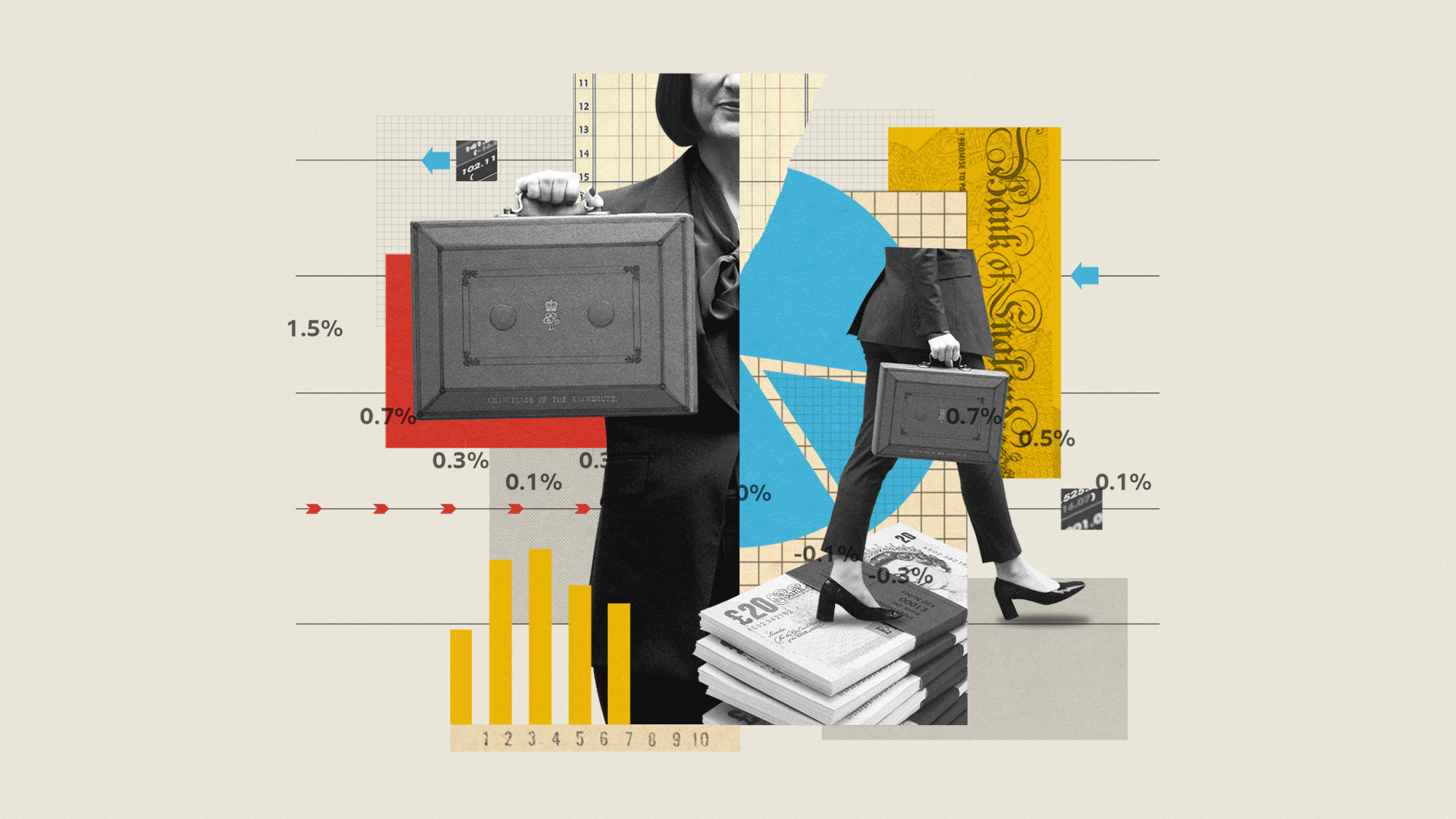Why is Labour struggling to grow the economy?
Economic growth is central to the government's plans but Britain's GDP grew by just 0.1% in the third quarter

A free daily email with the biggest news stories of the day – and the best features from TheWeek.com
You are now subscribed
Your newsletter sign-up was successful
The UK economy barely grew at all in the third quarter of this year, in a blow to Labour's plans for growth.
The economy expanded by just 0.1% between July and September – Labour's first three months in power – according to the Office for National Statistics. The figure is a drop from the 0.5% growth between April and June.
Economists had forecast growth of 0.2%, which still represented a slowing of the trend in the first half of 2024, "when the economy was rebounding from last year's shallow recession", said Sky News.
The Week
Escape your echo chamber. Get the facts behind the news, plus analysis from multiple perspectives.

Sign up for The Week's Free Newsletters
From our morning news briefing to a weekly Good News Newsletter, get the best of The Week delivered directly to your inbox.
From our morning news briefing to a weekly Good News Newsletter, get the best of The Week delivered directly to your inbox.
Responding to the data release, Chancellor Rachel Reeves said she was "not satisfied with these numbers", the Financial Times reported. "Improving economic growth is at the heart of everything I am seeking to achieve," she said.
The figures are a blow to one of Labour's key manifesto pledges, which is to "secure the highest sustained growth in the G7". Keir Starmer has said he wants growth of 2.5% a year.
What did the commentators say?
"If Rachel Reeves and Keir Starmer were hoping to add credibility to their growth-driving ambitions, today's weak GDP data is not going to be helpful," said Bloomberg.
However, Labour's first economic output report ends before the October Budget. As such, the figures are "more about anxiety amid speculation about what might be in the budget, rather than the measures it contained". In September, there were plenty of warnings about "tough decisions" from the government, as well as much talk over which taxes would be hiked. "So, for the impact of Labour's budget day announcements, next quarter's GDP report will be one to watch."
A free daily email with the biggest news stories of the day – and the best features from TheWeek.com
The economy contracted by 0.1% in September, a fall "led by a decline in manufacturing production", said The Guardian, and the second half of this year had been predicted to be slow.
Yet some business groups and analysts have been "quick to point the finger at the government" for creating a gloomy economic atmosphere with their repeated warnings over the tough decisions ahead. Former Bank of England chief economist Andy Haldane said that Reeves' warnings over the apparent £22 billion black hole left in the public finances by the previous government had been "unhelpful economically" and had created "fear and foreboding" among businesses.
"One month's growth figures do not tell the whole story," said Kate Andrews in The Spectator. But Labour's problem is that it has "couched every decision it has made so far – from inflation-busting pay rises for the public sector, to the tax-hiking Budget, to its promises for mass reform – as growth-boosting decisions".
While one set of figures won't determine the UK's overall growth trajectory, Labour has "little time to spare", with Britain looking "much closer to stagnation than it does to sustainable growth".
What next?
There seems to be a consensus across the UK that the country is "in a very bad way", said William Davies in the London Review of Books, driven in part by its poor economic performance since the 2008 financial crisis.
But while Starmer "can talk all he likes" about needing two terms to "fix the foundations" of Britain's economy, "that doesn't mean he'll get them". Even if Labour does prove itself to have the expertise necessary to turn the country's economic fortunes around, neither does it mean that "voters will remember to thank them".
And while economists "still expect growth to pick up next year", the general sentiment over Britain's economic future is not bright, said Bloomberg. Businesses remain worried after a Budget "packed with tax rises".
Sorcha Bradley is a writer at The Week and a regular on “The Week Unwrapped” podcast. She worked at The Week magazine for a year and a half before taking up her current role with the digital team, where she mostly covers UK current affairs and politics. Before joining The Week, Sorcha worked at slow-news start-up Tortoise Media. She has also written for Sky News, The Sunday Times, the London Evening Standard and Grazia magazine, among other publications. She has a master’s in newspaper journalism from City, University of London, where she specialised in political journalism.